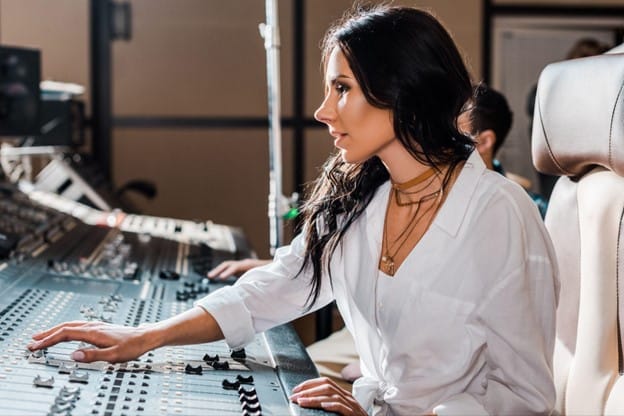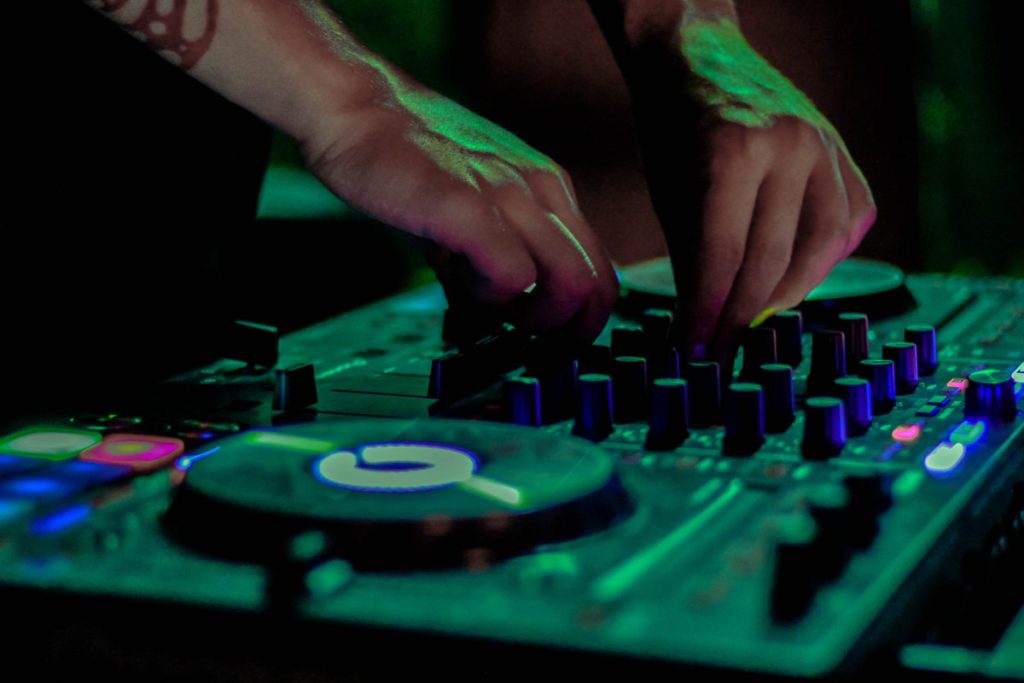Table of Contents
Toggle- A first session is as much about learning the process as it is about recording music
- Preparation makes the day smoother and allows more focus on creativity
- Clear communication with engineers strengthens collaboration
- Confidence grows naturally as you adjust to the studio environment
The experience of entering a studio can be both thrilling and frightening. You have been working on your music, and now you are entering a world where sound is a craft.
Audio engineers are present to take you through that process and their experience can help you refine your ideas into something polished and professional. Although you may be preoccupied with how your songs will sound, the experience is also about getting familiar with how the studio functions and locating your rhythm in it.
Your initial session is not about getting everything right at the very beginning. It is about finding a sense of home in a new environment, learning how to make the most of the time spent, and learning how to make the people who record the music you listen to every day feel welcome. You will be more relaxed knowing what to expect before you arrive and can concentrate on the creative part rather than being bothered with the unknown.
What is an Audio Engineer?
An audio engineer’s responsibilities encompasses all technical aspects that ensure a track sounds balanced, clear and consistent. Unless you have ever worked with one, it is easy to undervalue the amount of work that an audio engineer does. They are not there to press record.
That can include setting microphones to get the correct tone, or setting levels so that nothing distorts, or working in the background to fix things before you even realize it.
An engineer is also a translator between your creative vision and the technical aspect of sound. When you tell them that you want it to be brighter or warmer, they understand how to do it using equipment and settings.
They can give you ideas or points of reference when you are not sure what to say about what you are hearing. This collaboration is among the most crucial elements of the recording procedure, particularly when you are a beginner and just searching your way.
Before Your First Session Preparation
How you prepare before you get to the studio can make a huge difference in the ease of the day. Although nerves are natural, it will be easier to be organised. Being able to rehearse your songs to a level where you no longer have to consider every note of your song allows you to concentrate on expression, as opposed to simple performance.
When you are carrying instruments, ensure that they are in proper working conditions and when you are dealing with digital files, ensure that they are labeled appropriately and stored in appropriate formats.
Preparation is not only technical. Consider what you would like to accomplish during the session. Is it a rough demo you want to get down or are you looking to get a final recording that you can release?
Communicating that objective to the engineer assists them in steering the process and establishing achievable expectations of what can be accomplished within the booked time. The better you walk in knowing what you want, the more productive your session will be.
The General Flow of a Studio Session
Setting up is probably the first step in your first visit, and that may take longer than you think. To ensure that all sources of sound are recorded in a clean manner, engineers will place microphones, check levels and test recordings. After that foundation is established, the actual tracking commences.
You may rehearse a song several times, pausing to change tones or performance settings where necessary. Breaks are frequently constructed in such a way that you do not get tired, and the engineer can replay parts to assist you in making a decision whether they are prepared to proceed.
The beat of a session is somewhat technical routine, somewhat decision-making. In a professional recording studio, everything is designed to make those two aspects work together. The engineer listens to the details such as timing and tone as you focus on the performance itself.
At the end of the day, you will have a better idea of what is possible to achieve in one session and a better understanding of the teamwork that goes into the process.
Communication and Cooperation
Your ability to communicate is the most valuable tool you carry into a studio, not an instrument or a piece of gear. The engineers use your feedback to make the sound sound like something that is true to you. When you want a specific mood, you can mention songs that you like, and they will have a clearer idea about what you want to achieve.
Meanwhile, being receptive to their ideas can expose you to methods that you may not have thought of.
Teamwork is most effective when both sides have trust. There is no need to learn the technical language to tell what you want, and it is often sufficient to tell how something sounds to you.
That is what engineers are trained to translate into technical adjustments. It is not a sign of inexperience to ask questions when you are not sure, and it is part of establishing a working relationship that makes your music stronger.
Common First-Time Surprises
Although you may have done a lot of rehearsing, you may still have some surprises during your first session. Among the largest surprises is the amount of time spent in setup and testing before recording even starts. You could also be surprised to see the number of takes that are recorded even when you think that you already got it.
Engineers are aware that the presence of several versions provides greater flexibility in the editing and mixing process.
The other shock to many novices is the level of detail of the process. A slight change in the position of the microphones, the voice or the timing can be noticed. It is not uncommon to take more time on a single song than you thought, particularly when you are seeking a professional outcome.
These are some of the learning curve moments that make you realize why professional recording sounds as polished as it does.
Advice on Developing Confidence in the Studio
Confidence does not consist in being familiar with all the technical details. It is a result of letting yourself relax into the setting and concentrating on the music. When one believes in the process, it is easier to release pressure and do what comes naturally.
When something is not right, it is better to speak up early before being frustrated in the future. Engineers anticipate questions and are accustomed to taking beginners through the workflow.
The other method of creating comfort is by keeping in mind that errors are not a failure. The process of recording is aimed at capturing several takes, and what may seem like a mistake may actually result in an original idea.
The less tense you are, the more comfortable your performances will be, and the more you will enjoy the session in general.
Concluding Your First Experience
The first session will probably leave you with more than just recorded tracks. You will also better understand how the sessions work and what part you have in the result.
It teaches you the art of planning and being flexible, collaborating with colleagues in an artistic setting, and adjusting when things go wrong.
When you leave the studio after that first day, you might already be contemplating what you will do differently the next time, be it how you prepare material or how specific you want the sound to be.
The sessions are one after another, and the first one is just the beginning of your life in making music in a professional environment.



